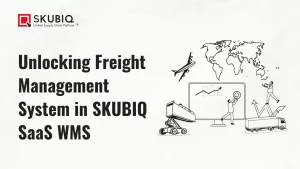In today’s rapidly evolving retail landscape, cloud computing storage has become an essential tool in transforming warehouse management for omnichannel retailers. As businesses expand their reach across multiple channels, the need for a seamless, integrated approach to managing inventory and fulfilling customer orders has never been more critical. Cloud computing offers a dynamic and scalable solution that addresses these challenges, ensuring that retailers can meet the demands of a diverse and ever-changing market.
The Role of Cloud Computing in Modern Warehouse Management
The integration of cloud computing into warehouse management systems (WMS) has revolutionized the way retailers handle their inventory. Traditionally, warehouse management relied on on-premises systems that were often siloed and lacked the flexibility to adapt to the fast-paced nature of omnichannel retailing. With cloud-based solutions, retailers can now access real-time data, automate processes, and improve decision-making across all their distribution channels.
Enhanced Data Accessibility and Real-Time Insights
One of the most significant advantages of cloud computing in warehouse management is the ability to access data in real-time. This real-time data accessibility allows retailers to monitor inventory levels, track shipments, and manage orders from anywhere, at any time. With this level of visibility, retailers can make informed decisions quickly, reducing the risk of stockouts or overstocking.
Cloud-based WMS also enables data integration across multiple systems, ensuring that all relevant information is available in one place. This integration is crucial for omnichannel retailers who need to manage inventory across various platforms, including online stores, brick-and-mortar locations, and third-party marketplaces. By having a unified view of inventory, retailers can optimize their stock levels and ensure that products are available when and where customers need them.
Scalability and Flexibility for Growing Retailers
As omnichannel retailers grow, their warehouse management needs become more complex. Cloud computing offers the scalability required to handle this growth without the need for significant investments in infrastructure. With cloud-based storage, retailers can easily expand their operations, add new locations, or increase their inventory without worrying about outgrowing their existing systems.
The flexibility of cloud computing also allows retailers to adapt to seasonal fluctuations in demand. For example, during peak shopping periods such as the holiday season, retailers can temporarily increase their storage capacity to accommodate higher volumes of inventory. Once the peak season is over, they can scale back down, ensuring that they are only paying for the resources they need.
Automation and Efficiency in Warehouse Operations
Cloud computing has brought a new level of automation to warehouse management, streamlining processes and reducing the need for manual intervention. Automated systems can handle tasks such as order processing, inventory updates, and shipment tracking, freeing up staff to focus on more strategic activities.
Automation also improves the accuracy of warehouse operations, reducing the likelihood of errors that can lead to costly delays or customer dissatisfaction. For omnichannel retailers, this is particularly important as they need to ensure that orders are fulfilled quickly and accurately across all their channels.
Improved Collaboration and Communication
In an omnichannel environment, effective collaboration and communication between different parts of the business are essential. Cloud computing facilitates this by providing a centralized platform where all stakeholders can access the same information. This ensures that everyone, from warehouse staff to customer service representatives, is working with the most up-to-date data.
Cloud-based communication tools also enable better coordination with third-party logistics providers, suppliers, and other partners. This improved collaboration can lead to more efficient supply chain management, helping retailers meet customer expectations for fast and reliable delivery.
Cost Efficiency and Resource Optimization
Investing in on-premises warehouse management systems can be expensive, particularly for small and medium-sized retailers. Cloud computing offers a more cost-effective alternative, allowing retailers to pay for storage and processing power on a subscription basis. This cost efficiency means that retailers can allocate more resources to other areas of their business, such as marketing or product development.
Moreover, cloud computing helps retailers optimize their resources by providing insights into inventory turnover rates, storage utilization, and other key metrics. By analyzing this data, retailers can identify areas where they can reduce waste, improve efficiency, and ultimately increase profitability.
Enhanced Security and Compliance
Security is a major concern for any retailer, particularly when it comes to sensitive customer data. Cloud computing providers invest heavily in security measures to protect their clients’ data, including encryption, firewalls, and regular security audits. This level of protection is often beyond the capabilities of individual retailers, making cloud-based solutions a more secure option.
In addition to security, cloud computing also helps retailers comply with various regulations and standards, such as GDPR or PCI DSS. Compliance is crucial in the omnichannel environment, where retailers must handle customer data across multiple channels and jurisdictions. Cloud providers offer tools and resources to help retailers maintain compliance, reducing the risk of fines or legal action.
The Future of Cloud Computing in Warehouse Management
As technology continues to advance, the role of cloud computing in warehouse management is set to grow even further. Emerging technologies such as artificial intelligence (AI) and the Internet of Things (IoT) are being integrated into cloud-based WMS, providing retailers with even more powerful tools to manage their operations.
For example, AI can be used to predict demand, optimize inventory levels, and identify potential bottlenecks in the supply chain. IoT devices can track the condition of goods in real time, ensuring that products are stored and transported under optimal conditions. By leveraging these technologies, retailers can enhance their warehouse management capabilities and stay ahead of the competition.
Conclusion
In conclusion, cloud computing storage is transforming warehouse management for omnichannel retailers, offering a range of benefits including enhanced data accessibility, scalability, automation, and improved collaboration. As retailers continue to navigate the complexities of omnichannel retailing, cloud-based solutions will play an increasingly important role in helping them meet customer demands and drive business growth.



